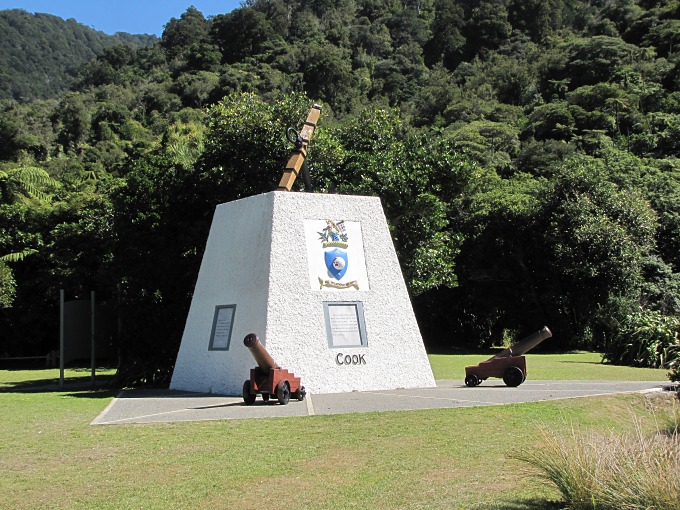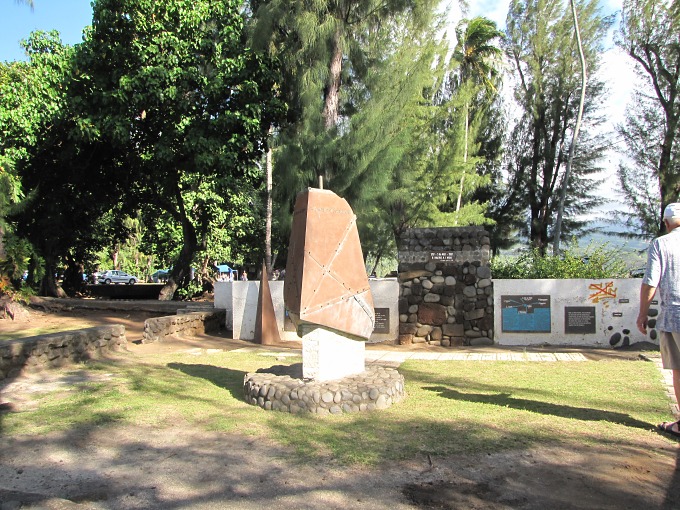Part of the allure of being in another country is the ability to learn as much about the place we're visiting as possible. Australia is much like the States in many ways. It's the differences we find of interest and seeking them out, wherever and whatever they might be, is high on our priority list.
 That's why, when our friend, Reg, told us over dinner that he was hearing a criminal case in Hobart on Monday, we asked if we could sit in. He's an Australian magistrate (judge) who happens to like sailing and is berthed near us at the marina. What an opportunity!
That's why, when our friend, Reg, told us over dinner that he was hearing a criminal case in Hobart on Monday, we asked if we could sit in. He's an Australian magistrate (judge) who happens to like sailing and is berthed near us at the marina. What an opportunity!
Situated conveniently next to the police department and “reception prison”, the Magistrate Court building is modern and pretty impressive for a provincial city building. Like the US, we passed through an x-ray security check and additionally, David was wanded. He always looked suspicious. We were warned in advance to leave our guns and knives behind and unfortunately, no cameras are allowed. We climbed the winding steps to the second floor where lots of folks were milling about, anxiously awaiting their turn for business before the court. We found Courtroom #4 and quietly slipped into our seats.
Reg sat, on an elevated platform raised a bit above the court, at what we'd call “the bench”, really a modern desk-like arrangement. He was taking copious notes as he listened intently to the prosecutor question a local constable who was giving testimony. A young man was accused of three counts of disorderly conduct and one count of assaulting a police officer. The constable was testifying. The young man sat alone at his table...no barrister (lawyer); he was defending himself and looked pretty confident...almost cocky.
It seems he was drunk one night in a popular waterfront area in Hobart and got into a verbal altercation with another fellow. According to the police, he was loud, swearing and obviously drunk and was given a verbal warning by the local constables on patrol (cops!) and told to leave the area. Subsequent “hostile” actions including more swearing and gesturing, led to an arrest by the police and a trip to the police station where he was booked and then bonded out. Unable to get back into his hotel room, he went back out looking for his mates when the police spotted him clearly in violation of his bond stipulations and he was arrested again. They claim he spit at them (assault with a phlegmy weapon?) when they were trying to handcuff him.
The defendant's version...he admits was drunk and got into a heated political argument with another bloke, but as soon as he saw the cops, he quieted down and complied with their directives. After telling him to leave the area, he did. They followed him, arrested him and treated him roughly without provocation on his part. He didn't do any of the bad things they accused him of...except being drunk in public.
It was clearly a case of he said/she said. Though several constables testified, there might have been a few holes in their stories. And there were definitely a few holes in the defendant's story. Like US courts, the proceedings were slow and methodical. Nothing was decided while we were there.
Once the courtroom was emptied for the lunch recess, the clerk called us up and we went behind the closed doors at the back of the courtroom to meet with Reg. It was just a small room with an old, well-used desk...a waiting room for the judges. We got to see the courtroom from the judge's perspective, however and Marcie took advantage of Reg's generous nature and sat in his chair. Judge Judy watch out!
Over dinner later, we discussed differences in the legal systems of the two countries. One major difference is, of course, Australia has no death penalty and they cannot conceive of a civilized country that does. Australia will not, in fact, extradite a capital offender to a country that does have the death penalty...like the US, for instance. Gun control laws are very strict here. No automatic rifles, semi-automatic weapons or even shotguns. Interestingly, the firearm homicide rate in Australia fell by 59 percent, and the firearm suicide rate fell by 65 percent, in the decade after the gun control law was introduced, without a parallel increase in non-firearm homicides and suicides.
Another difference: Voting is compulsory in Australia. They actually make it easy for people to vote though. Voting day is not a Tuesday in the middle of a work week where you have to either take time off from work or vote early or late. They vote on Sunday here to assure people have the day off. You don't have to vote for anyone if you don't like who's running; you just have to show up and claim your ballot. If you don't vote, you can be fined or imprisoned although there's some question as to whether this would be enforced.
There were no white wigs nor black robes, although they're optional in the state county courts, we're told. We noted a considerable amount of bowing as police and other court officials entered and left the courtroom. Reg just wears a tie and dress shirt. He says he'd prefer a black robe like judges in the US, just to let folks know that he's the referee sitting up there. It would also be less important for him to wear nice slacks.
 To test the legal system, David got a speeding ticket on the way back to Kettering formally known as a Tasmanian Police Infringement Notice. The constable was courteous, but stern. He issued a “conditional caution”, so David is now “in the system”. Lucky it was only a caution because the speeding fine (64km in a 50km zone) would have cost us $110. Reg assured us he would have had no interest in “fixing” a ticket for us and would probably have thrown the book at David should he appear in his courtroom.
To test the legal system, David got a speeding ticket on the way back to Kettering formally known as a Tasmanian Police Infringement Notice. The constable was courteous, but stern. He issued a “conditional caution”, so David is now “in the system”. Lucky it was only a caution because the speeding fine (64km in a 50km zone) would have cost us $110. Reg assured us he would have had no interest in “fixing” a ticket for us and would probably have thrown the book at David should he appear in his courtroom.
 Taking money out of an ATM in a foreign country is like getting Monopoly money out of the bank. The bills are colorful compared to our singular, drab green and they sport portraits of people and events we don't recognize. Foreigners complain it's hard to tell one bill from another in the US since all of our bills are the same color and size. I tell them we look at the numbers … there's no color-coding in America.
That said, here we are in Australia and it's hard to know what our American dollar is worth any more. A few years ago, the American dollar was worth about $1.50 in Australia. We arrive and it dips to 95¢. I remember being in Canada when the exchange rate was at 50%. Those were the days. I check currency exchange rates frequently now because it can make a big difference. When we charge something on Master Card, for instance, they first convert from the Australian dollar which at the moment is $1.05, so right off the bat, everything we charge costs us 5% more. Then add to that the fee they charge for doing the currency conversion and it really adds up.
Taking money out of an ATM in a foreign country is like getting Monopoly money out of the bank. The bills are colorful compared to our singular, drab green and they sport portraits of people and events we don't recognize. Foreigners complain it's hard to tell one bill from another in the US since all of our bills are the same color and size. I tell them we look at the numbers … there's no color-coding in America.
That said, here we are in Australia and it's hard to know what our American dollar is worth any more. A few years ago, the American dollar was worth about $1.50 in Australia. We arrive and it dips to 95¢. I remember being in Canada when the exchange rate was at 50%. Those were the days. I check currency exchange rates frequently now because it can make a big difference. When we charge something on Master Card, for instance, they first convert from the Australian dollar which at the moment is $1.05, so right off the bat, everything we charge costs us 5% more. Then add to that the fee they charge for doing the currency conversion and it really adds up.






